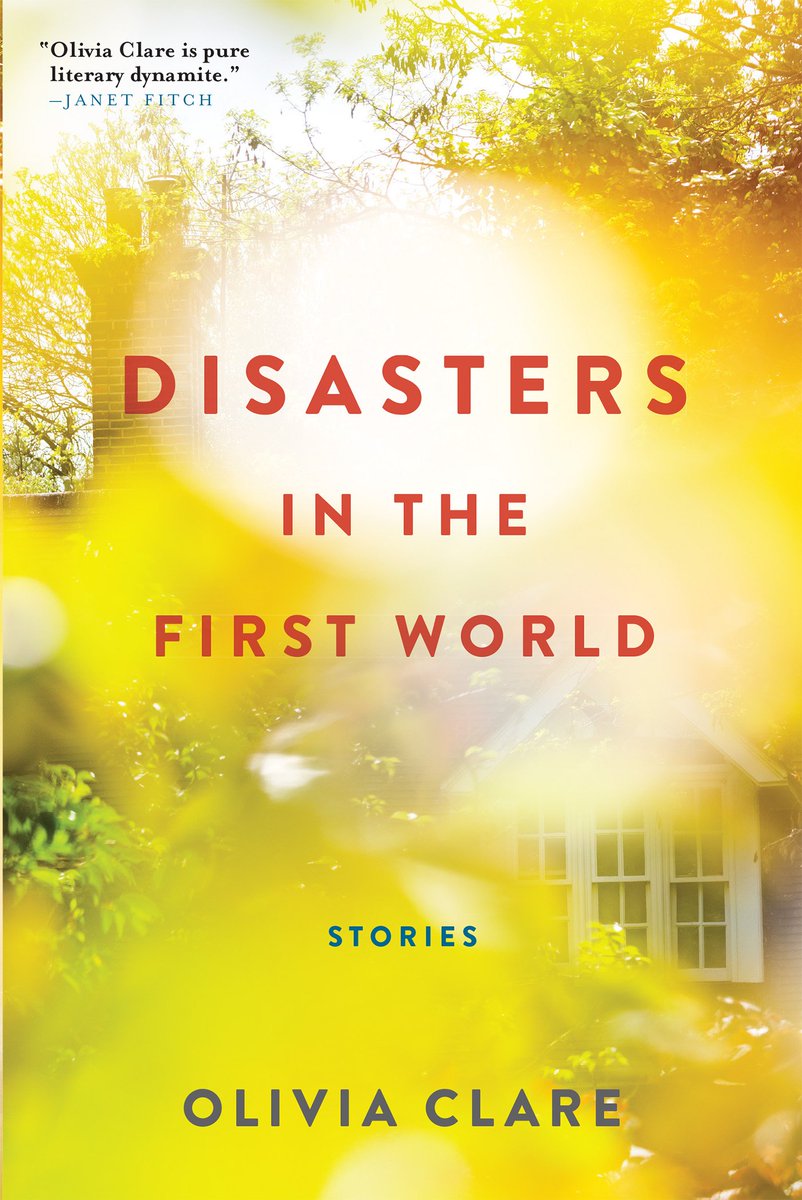Amy Brady writes: Scientists have been trying to warn us about climate change’s most devastating effects for decades. Now fiction writers are helping their cause, crafting stories that help readers imagine glacier melt, sea level rise and other climate-related scenarios.
It's called cli-fi and it might be another way to help save the planet, says Amy Brady at Ozy.com -- [Four cli-fi novels worth exploring]
Often called
climate fiction, or cli-fi, the genre “helps writers overcome some of the most profound communication challenges” that the phenomenon presents, says Elizabeth Rush, visiting lecturer at Brown University. Why? Because
climate change is “slow-moving and intensely place-based,” it can be difficult to notice in our day-to-day lives, she explains — and with
climate fiction, “you can do just that. You can imagine being a person whom flood or
drought displaces, and with that imaginative stance can come radical
empathy.”
Check out these thought-provoking cli-fi reads from around the world about: 1, a futuristic Finland where water is scarce, 2, a German scientist distraught over disappearing glaciers, 3. a UK teenager living in a carbon-rationed England and 4. a climate-conscious biologist exploring a string of islands off the coast of India.
MEMORY OF WATER BY EMMI ITÄRANTA
Set in the near future in Scandinavia, this novel, Itäranta’s first, is speculative fiction at its best. Climate change has ravaged the planet, and in its wake, China has come to rule Europe, and wars are waged over precious resources like water. Amid all this, 17-year-old Noria Kaitio strives to be a “tea master” like her father and, in doing so, has learned of a secret water source. When her father dies, the national army begins watching her closely, and she must decide whether to keep her secret and risk her safety or tell it and risk betraying those closest to her. The novel is even more remarkable because Itäranta wrote two versions, one in Finnish and one in English, simultaneously.
THE LAMENTATIONS OF ZENO BY ILIJA TROJANOW; ABLY TRANSLATED BY PHILIP BOEHM
This literary work of cli-fi from Bulgarian-German writer Trojanow was written in a modernist style that captures the fragmented thoughts of the protagonist, Zeno Hintermeier, in streams of consciousness. The original title in German was ''EISTAU'', ('Melting Ice'). Greatly disturbed by the world’s rapidly declining glaciers, Hintermeier, a German scientist, embarks on a plan to convince the world to pay more attention to how humanity is destroying the planet. This plan comes at a time of personal trouble for Zeno: Just as his marriage is falling apart, he’s questioning how to keep his work relevant in a world that seems completely oblivious to global warming. The comic-tragic book is often despairing, but even its saddest parts are rendered in lovely, lyrical prose.
THE CARBON DIARIES 2015 BY SACI LLOYD
Written in 2012, this young adult novel imagines an England in 2015 so deeply damaged by climate change that carbon rationing has begun. It stars 16-year-old Laura, who spends her days going to school and playing in a punk band. But her anxiety is growing over her parents’ pending divorce and an approaching hurricane that scientists predict will be the strongest ever to hit England. The novel is structured as the diary she keeps to make sense of her world as it grows more chaotic. Such a structure might turn some adults off, but Lloyd’s keen attention paid to real human emotion — in teenagers and adults — makes the book relatable for almost anyone.
THE HUNGRY TIDE BY AMITAV GHOSH
Written by the American (Brooklyn-based) author of The Great Derangement, a work of nonfiction that addressed the world’s need for more cli-fi novels, this ambitious cli-fi novel combines lyricism with fast-paced action. Set on an archipelago of tiny islands located just off the coast of India, the novel follows Piya Roy, an American marine biologist of Indian descent, who’s thrown from a boat into water teeming with crocodiles. She’s saved by a local fisherman, with whom she learns to engage with the help of a translator. As the trio ventures deeper into the islands’ wilderness, they learn not only of the dangers of the encroaching tide — but also of the political turmoil that wreaks havoc on the islands’ people and land.



